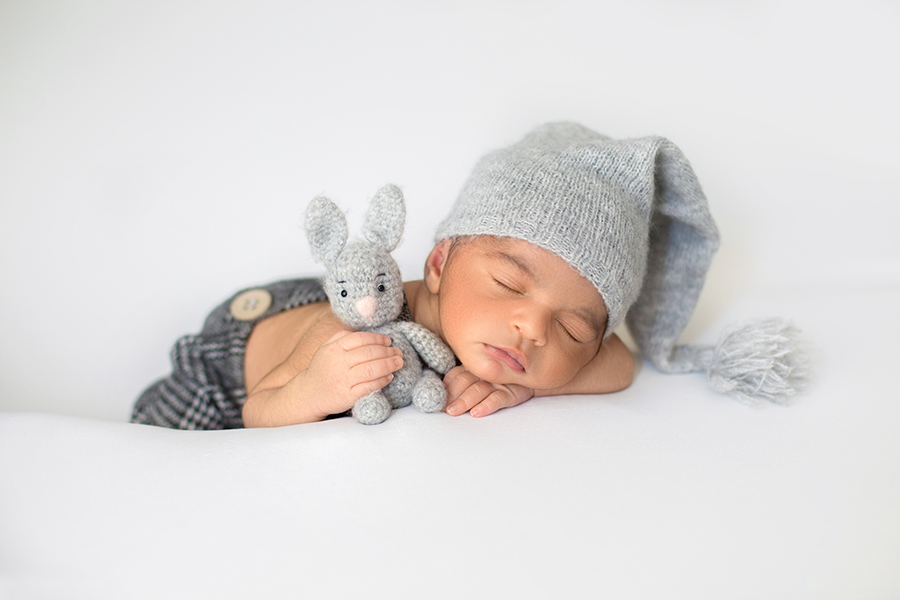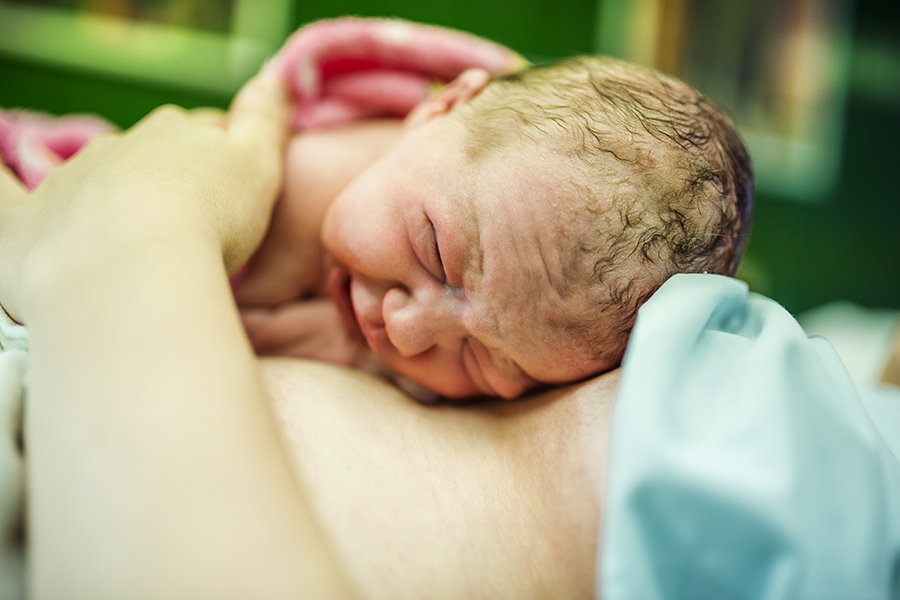New moms and dads wonder how much sleep do new-borns really need. The answer may surprise you. According to the National Sleep Foundation, new-borns (up to 3 months old) need between 14 and 17 hours of sleep each day. That’s a lot!
What’s more, new-borns don’t have a regular sleep pattern like adults do. Instead, they sleep in short spurts, usually for just a couple of hours at a time. So don’t be alarmed if your newborn is up for several hours in the middle of the night. It’s perfectly normal.
One thing to keep in mind is that every baby is different. Some newborns may sleep more or less than the guidelines suggest. If you’re concerned about your baby’s sleep habits, talk to your pediatrician.
It’s no secret that having a new-born can be pretty exhausting. You’re constantly feeding, changing, and trying to soothe them while also dealing with lack of sleep yourself.

The importance of sleep for new-borns
It’s no secret that new-borns need a lot of sleep. In fact, they need more sleep than any other age group. And while they may not always seem like they’re getting enough, the truth is that sleep is essential for their health and development.
A good night’s sleep helps new-borns to grow and develop properly. It also supports their immune system, helps them to regulate their body temperature, and gives them the energy they need to explore and play.
However, sleep isn’t always easy to come by for newborns. They may be unsettled by hunger, discomfort, or simply being in a new environment. This is why it’s important for parents to create a calm and comfortable sleep environment for their baby.
There are a few things you can do to encourage your newborn to sleep through the night:
- Establish a bedtime routine and stick to it as much as possible. A bath, a feeding, and a few minutes of reading or cuddling can help to signal to your baby that it’s time to sleep.
- Keep the room dark and quiet. A white noise machine can be a valuable tool in helping your new-born to drift off to sleep.
- Put your baby to sleep on their back to reduce the risk of Sudden Infant Death Syndrome (SIDS).
- Avoid letting your baby become overtired. An overtired baby is more likely to be fussy and have difficulty falling asleep.
With a little trial and error, you’ll find what works best for you and your baby when it comes to encouraging a good night’s sleep. And, in the meantime, cherish those wakeful moments – they won’t last forever!
The benefits of sleep for newborns are many and varied. They include important physical and mental development benefits, as well as the potential to reduce stress and improve overall wellness.
One of the most important benefits of sleep for newborns is the role it plays in physical development. Newborns require a lot of sleep in order to grow and develop properly. In fact, babies generally sleep for around 16 hours each day. This sleep helps their little bodies to repair themselves, as well as to grow and develop.
Another important benefit of sleep for newborns is the role it plays in mental development. Sleep is essential for babies to learn and remember things. Studies have shown that babies who get enough sleep have better cognitive abilities than those who don’t.
Additionally, sleep plays a role in reducing stress. When babies are exhausted, they are more likely to be cranky and fussy. This can be very stressful for both babies and their parents. However, when babies get enough sleep, they are more likely to be calm and content. This can lead to a reduction in parental stress levels.
Finally, sleep is also important for overall wellness. Getting enough sleep can help to improve immune function and reduce the risk of illness. It can also help to improve energy levels and mood.
Overall, the benefits of sleep for newborns are numerous and varied. If you are a new parent, make sure to get your baby plenty of sleep!
It is well documented that lack of sleep can have an impact on our mood, cognitive function, and physical health. But what about sleep and newborns?
The impact of sleep on newborns is often under-appreciated. It is only recently that researchers have begun to study the importance of sleep for babies. And what they are finding is that sleep is critical for newborns, just like it is for adults.
There are a few reasons why sleep is so important for newborns. First, sleep helps babies to develop their circadian rhythm, or their natural sleep-wake cycle. This is important because it helps babies to know when it is time to sleep and when it is time to be awake.
Second, sleep helps babies to consolidate their memories. This is important because it helps them to remember what they have learned during the day.
Third, sleep helps babies to regulate their emotions. This is important because it helps them to regulate their reactions to the world around them.
Fourth, sleep helps babies to grow and develop. This is important because sleep is when the body releases growth hormone, which helps babies to grow and develop properly.
Finally, sleep is important for babies because it helps them to avoid developing obesity later in life. This is important because obesity is a risk factor for many chronic diseases, such as heart disease, stroke, and diabetes.
So, as you can see, sleep is extremely important for newborns. If you are a new mother, make sure to get as much sleep as you can. Your baby will thank you for it!
Would you like to know more about parenting? Go to our next article!
Would you like to know more about your pregnancy? Visit our Mumgazine YouTube channel!


Logint111: gave it a quick browse after seeing it mentioned. Initial impression is pretty positive. Looks like they could have a good mix of stuff. Worth clicking around. logint111
Had no issues with 16betlogin. Straightforward and secure. Nice and easy! Check it out for yourself: 16betlogin
Triangagame, new to me! The site looks interesting. Anyone know what kind of games they offer? Give it a try and tell me! Get started at: triangagame
Yo, 136bet11! Been kicking back with this site for a bit, gotta say they’ve got a decent selection of games. Nothing too crazy, but it gets the job done. 136bet11 is my go-to when I just want a chill betting session.